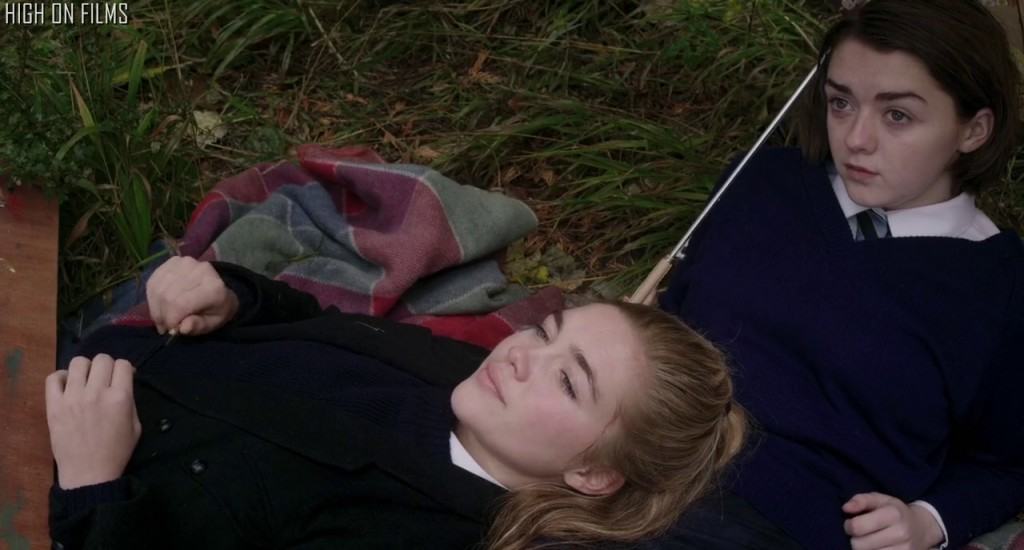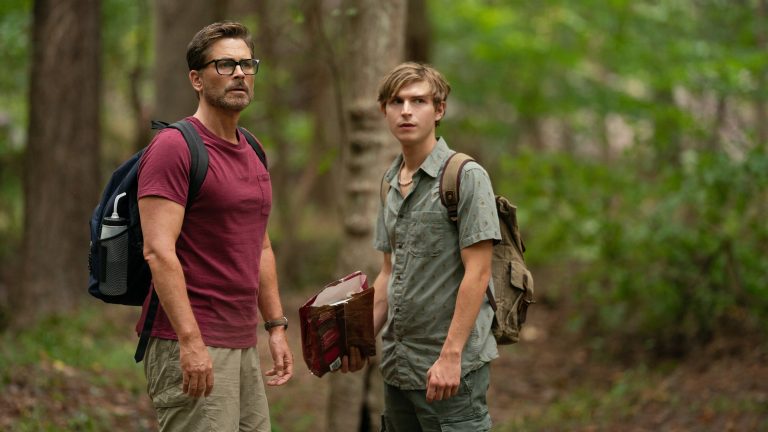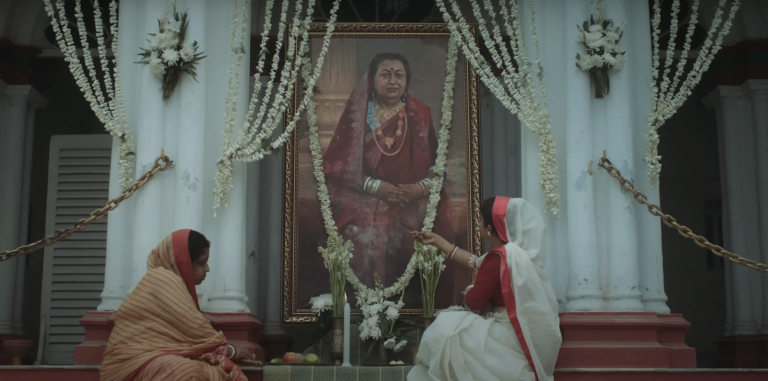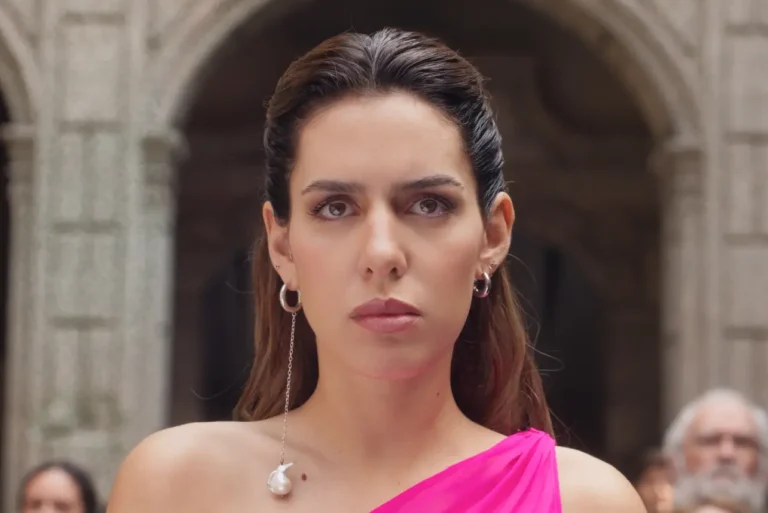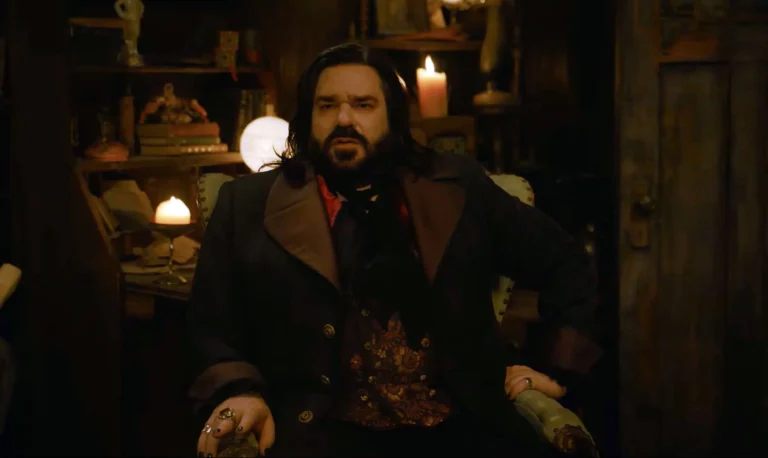When you click play, stark images of trees, water bodies, spring-laden countryside, and a scattered coloring stump appear as a girl sings a prayer. While colors often signify happiness and joy, Carol Morley has other plans. Like leaves that fall from tree branches as spring approaches, The Falling gets darker with every angel that falls prey to an unanswered question. It’s staggering how she manages to showcase a wide range of emotions, all surrounded by one truly chaotic entity—based mostly on lies, or maybe not?
There are films that make you feel happy—this isn’t one of those. There are films that make you sad—this isn’t one of those either. And there are films that connect with you—this isn’t that kind of film. And yet, it feels essential. Carol Morley’s The Falling has cemented a fact in my head: “I’m going to watch all her films from here on out.” The film features sleekly cut shots from the past lives of schoolgirls, hinting at hysteria as they become prey to a strange epidemic of fainting spells.
If you’re reading this, you’re probably sensing that The Falling is one of those hard-to-grasp films—and I won’t lie to your face, it definitely is. But if you look closely, it pulls you into a kind of voodooist trance that’s hard to let go. I still can’t decide how to classify this film. Is it a psychological thriller driven by the characters’ insanity? Is it a psychological horror, with the tree as the boiling point? Or is it a tragicomedy about an adolescent with mommy issues trying to move on from an intense, intimate friendship?
This diabolical tale touches on possession, maternal detachment, institutional chaos, and an individual’s inability to know what they truly want. But beneath it all, it’s not really about any of those things. The imagery might seem random, but it all circles back to one idea—sexual anxiety. The Falling feels like a poetic jab at confused teenagers searching for ways to satisfy their inner hunger. The subtle changes in color reminded me of Nicolas Roeg’s 1973 film Don’t Look Now. I still dread the color red because of that film alone.
Similar to The Falling: Demolition (2019) Movie Review: A Soul Crushing Coming of Age Drama
The Falling observes the peculiar and mysterious outbreak of mass hysteria in the early 1960s, told from the perspective of an all-girls school in England. The film follows two close friends—maybe even lovers—who share a deep, intense bond. When they meet after the bell rings or sit beneath the oak tree and promise to return year after year, you think you know where the story is heading. But things shift when one of them begins questioning the other’s loyalty, while the other simply shrugs it off—possibly due to hormonal chaos.
I remember asking myself several times during the film: “Where is this going? Why are they sharing already-chewed bubblegum? What does the red part of a broken egg mean?”
I’m not one of those film lovers who needs every question answered. I believe there’s beauty in the unanswered and mundane. But where do we begin? This hypnotic film gripped me with its poetic flourishes. The only downside? It tries a little too hard toward the end. It squeezes your gut just right—then leaves it twisted as you try to piece everything together.
For a film centered around two girls, there’s a strange, uncomfortable depth as it subtly reaches outward to other characters. There’s the teacher who uses a ruler as a symbol of discipline. There’s the young madame who’s losing her grip on youth. There’s the headmistress, her mystery burned through endless hours of chain-smoking. And there’s a helpless mother who spends her time watching moonwalks on TV—just so she can hate the world a little more. She presses herself against a metaphorical glass slipper that won’t let her escape her memories. The Falling isn’t letting go of mine either.
You know those films that work their magic (with a ‘k’) when you least expect it? This is one of them. There’s no real male presence in this film about sex—except for the brother, whose story never even wraps up. And that somehow makes it even more powerful. Carol Morley chose a wonderful female cast, led by Game of Thrones star Maisie Williams, whose anguished character tiptoes along the edge of good and evil. Florence Pugh, as her best friend, is a heroic yet dreadful revolutionist of sorts. Special mention to Maxine Peake, who plays the mother, speaking only when truly necessary.
The Falling (2014) is not a flawless film. There are things that don’t quite fit. But maybe those are mysteries I just didn’t understand. What it definitely is, though, is a near-perfect looker—a near-perfect film. Poetic, bewitching, disturbing, and unforgettable
